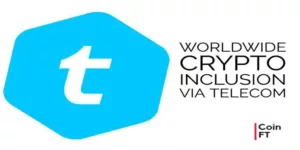Many of us in North America and Europe take the financial services we have and use for granted most of the time. Things like making a deposit or withdrawal, talking to an advisor or transferring money from account to account right from the comfort of your own home are things we all do without batting an eye. This is because they are so commonplace and have been around for what seems like forever that many of us don’t remember a time when financial services weren’t around. However, these are financial services that many people throughout the world simply do not have access to.
In reality, there are billions and billions of people throughout the world who don’t have access to a bank account, let alone all of the financial services I mentioned above. According to the World Bank, there are two billion adults on the planet who don’t have a bank account and in total, there are only about 1.2 billion bank accounts in total that are active throughout the world. That is an incredibly low number and it is crazy to think that the huge majority of the people living on this earth right at this very second do not have access to a bank account.
So what are the reasons for this lack of financial inclusion? Well, according to the World Bank it is mainly because of the fact that access to financial services simply costs too much money and it is simply not affordable for most people out there in the world. In addition to that, other issues are: the physical distance and travel time to and from a provider, lack of trust, no paper documentation and many more.
While financial exclusion exists for every one of all genders and races, there are certain groups that are more excluded than others. For example, women and poor people who live in rural areas are the most effected and the gender gap is around 9% when it comes to financial inclusion, which means there are 9% fewer women that have a bank account than men. Also, small and medium enterprises around the world don’t have access to funds needed to grow their business, which leads to an inability to grow as a company. All in all, there are many sufferers of this financial inclusion issue the world is currently facing.
This issue of financial inclusion is a huge one as access to financial services can facilitate tons of things. Many of us need money to live every day and it is instrumental in our long term goals and being able to deal with emergencies in your life. Without money (or at least access to some money), life can get difficult.Even as much as having a transactions account can help you dip your toes into financial services and allow you to store money and send/receive payments, sadly, not many people have access to even this in certain parts of the world.
Thankfully, this idea of financial inclusion is finally beginning to experience some progress and changes are starting to get made. Since 2010, well over 50 countries have made commitments to financial inclusion and 30 have launched a national strategy. The most progress has been achieved mostly through encouraging competition between banks and financial institution.
The World Bank has seen financial inclusion as something that could reduce extreme poverty in many different areas and could be very important going forward. As you can see, while there have been improvements and progress in the battle to increase financial inclusion, there is quite a long way to go and things are simply not where they need to be.
In fact, there are actually more mobile phones on the planet than there are open bank accounts, by about 4 times!! Thankfully, the problem of financial inclusion might actually be solved by using these phones. One company that is trying to become a solution to this financial inclusion issue (by using the very mobile phones we mentioned earlier) is Telcoin.
Telcoin is a new cryptocurrency based on the Ethereum blockchain that will be distributed by telecom operators and sold/given to their subscribers. It will be available to anyone and can be used and accepted anywhere. Telcoin has the potential to provide financial services like remittances, payments, transfers and more to billions and billions of people who simply have never had access to them in the past.
In conclusion, if companies and technologies like Telcoin can use the already-existing mobile phone market to help increase the financial inclusion, and this could help millions of people finally have access to financial services that could help them so much in their lives.








